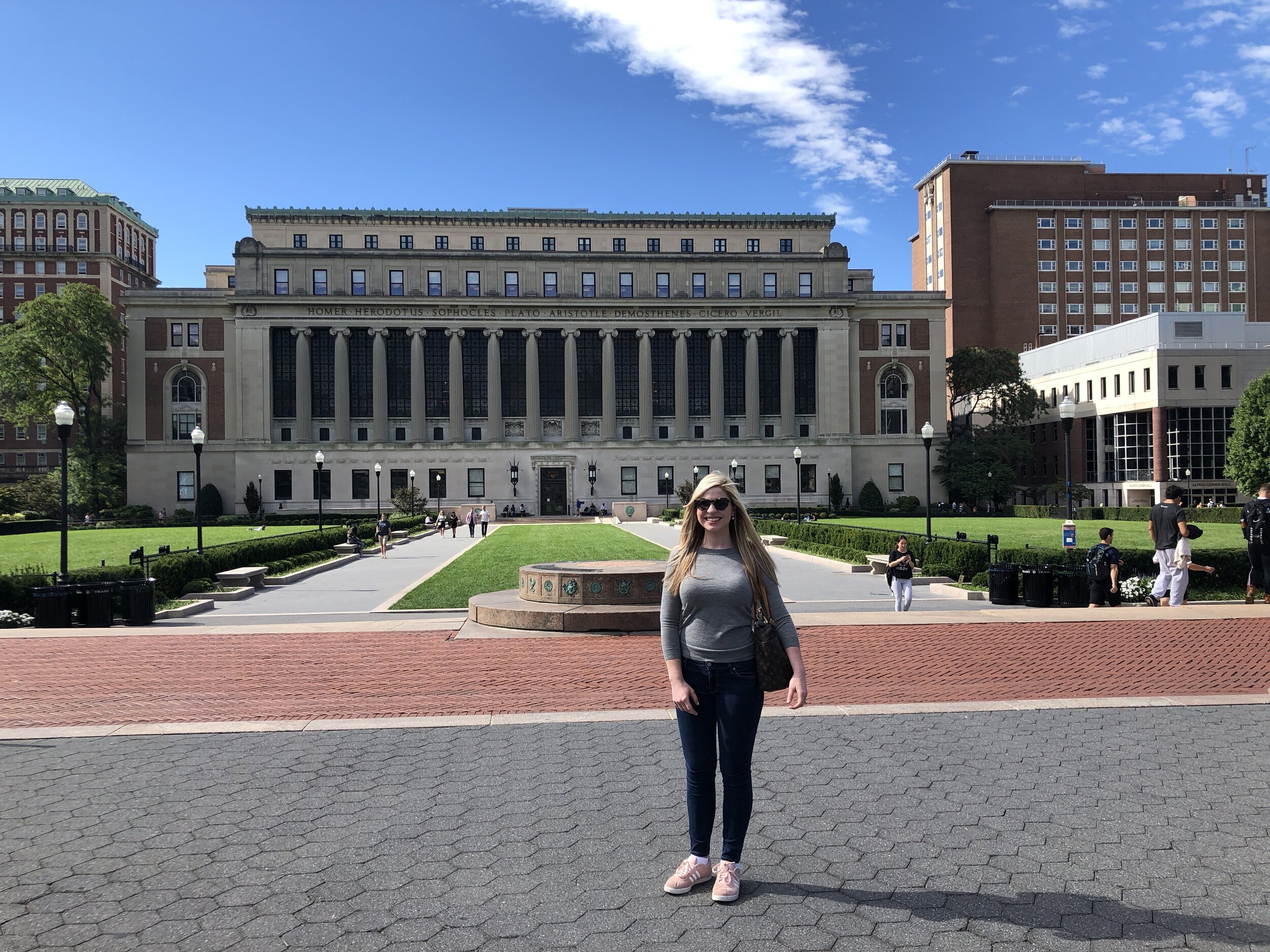We are continuing the curriculum-focused blog series that we began last week with our first deep dive into a school curriculum: UVa!
UVa is the perfect school to start with because they have a wide variety of core curriculum options within one school - some that are open to all students and some that are application-only. Keep in mind that we are only going to look at the requirements for the College of Arts & Sciences, so the information in this post may not apply to your specific situation.
Buckle up, because this is about to get complicated.
To start with, UVa’s core curriculum has three components. It is helpful to become familiar with the three components at the start, because each of the available curriculum pathways incorporates some variety of these components.
The curriculum components are: Engagements, Literacies, and Disciplines.
Engagements
The College of Arts & Sciences defines Engagements as “small, seminar-style courses that put you face-to-face with many of UVa’s leading scholars and teachers…they ask big questions, and invite you to think and talk about what you know and value.” Sort of reminds me of UVa’s “flash seminar” essay question, if you remember that one!
There are four Engagements: Aesthetic Engagement, Empirical & Scientific Engagement, Engaging Difference, and Ethical Engagement.
To meet the Engagements component, all first-year students must take one 2-credit course in each Engagement. Here are some examples of Engagement courses from the 2020-2021 academic year:
Aesthetic Engagement: “Are Movies True?” “Art: Inside/Out,” “The Aesthetics of Trauma,” “The Politics of Popular Music,” “On Ghosts”
Empirical & Scientific Engagement: “The Big Bang,” “Poverty Counts,” “Thinking Like a Scientist,” “Why We Hold Hands,” “Exploring Your Genome”
Engaging Difference: “#StayWoke,” “The Individual & Society,” “Other People’s Music,” “Unnatural”
Ethical Engagement: “Mortality & Morality,” “Ethical Dilemmas and Science,” “What is Engaged Citizenship?” “Why We Work,” “The Ethics of Piracy”
With me so far?
Literacies
The next component, Literacies, “equip students with the necessary skills and fluencies needed to succeed in a rapidly-transforming world.”
Literacies has three aspects: World Languages, Rhetoric for the 21st Century, and Quantification, Computation, and Data Analysis. Students must achieve intermediate proficiency in a language and take 6 total credits (or two courses) in each of the other literacies.
The Rhetoric for the 21st Century literacy is met first by a first-year “Writing and Critical Inquiry” seminar, and second by a more subject-specific writing course or an advanced writing seminar. The Quantification, Computation, and Data Analysis literacy requirement is met by many mathematics and statistics courses, as well as logic-heavy classes in other disciplines - such as Statistics for Psychology or Symbolic Logic for Philosophy.
Disciplines
If you’re caught up on Engagements and Literacies, we’ll move into the third and last component: Disciplines. Defined as “the varied ways our faculty approach knowledge, learning, and discovery,” the seven disciplines more or less align with core academic subject categories.
The Artistic, Interpretive, & Philosophical Inquiry requirement can be met by many courses in cultural studies, anthropology, art history, studio art, drama, music, creative writing, literature, history, media studies, philosophy, political theory, religion, and more.
The Chemical, Mathematical, & Physical Universe requirement can be met by courses in the hard sciences, such as astronomy, chemistry, physics, and environmental science, as well as mathematics courses.
The Culture & Societies of the World requirement can be met by many courses in cultural studies, anthropology, history, politics, sociology, and religion, as well as global studies courses across many departments.
The Historical Perspectives requirement can be met by many history classes, including art history, as well as American History and other cultural studies courses with a historical focus. It can also be met by English courses that focus on historical works (like Shakespeare), as well as historically-focused philosophy, religion, and politics courses.
The Living Systems requirement is looking for biology, chemistry, psychology, or environmental science courses, as well as select courses in anthropology and physics.
The Science & Society requirement can be met by a large number of economics courses, as well as certain classes with a scientific focus in anthropology, philosophy, and sociology, and some select environmental science classes.
Lastly, the Social & Economic Systems requirement is fulfilled by a huge number of courses in economics, politics, and international relations, as well as some classes in anthropology, cultural studies, history, sociology, psychology, and media studies.
BA candidates must earn 3 credits (usually one course) in each discipline, by taking courses across at least 6 different departments. But for BS candidates, the disciplines are a little more complicated. BS candidates can take 9 credits in disciplines 2, 5, or 6, and double-count one 3-credit course to meet both 3, 4, and/or 7. BS candidates must take courses across 5 different departments.
If that seems like a lot of information, that’s because it is! But don’t worry, students will have academic advisors who can help guide them through this process (and as previously noted, we have helped students with this kind of thing for years as well!). But at this point, if you’re thinking okay, I get it, I just have to take all of those courses… - nope! There are a few different pathways through the curriculum at UVa, some of which require separate applications and others which are randomly assigned to students in the incoming class.
Here are the two most common options to which incoming students are randomly assigned:
Engagements
Nope, this is not the Engagements component from above - this is Engagements pathway.
Students in the Engagements pathway take courses in all three components described above, and they take the credits exactly as we listed. That was easy!
Disciplines Plus
Students in the Disciplines Plus pathway do not take Engagements component courses at all. Instead, they fulfill their requirements through 30 credits of Disciplines courses. In addition to the requirements described above, they take an additional course in Discipline 1, an additional course in 2, 3, or 4, and an additional course in 5, 6, or 7, for a total of 9 additional credits (or three additional courses). They complete the regular Literacy requirements as detailed above.
When it comes to these two pathways, students are notified of their randomly assigned pathway in May. Current high school seniors can apply to switch pathways between May 22-June 1, 2021 by submitting a 500-word statement detailing why they wish to switch.
In general, students who enjoy debates and discussion may prefer the Engagements pathway, while students who prefer a more traditional lecture approach to coursework may prefer the Disciplines Plus pathway. Regardless, students seeking to switch pathways need to make sure that their 500-word statements show that they clearly understand the differences and have well-thought-out reasons for seeking these changes.
But didn’t I mention more applications earlier? You bet!
There are two more selective approaches to the general education requirements at UVa, as well:
Forums
Forums are made up of 40 students who take a tailored group of courses around a particular topic or theme. Forum faculty select the courses that students will take over their first two years. In addition to this selection, students must also complete the World Languages and Rhetoric for the 21st Century requirements. All Forum students must take a required forum class for the first two years in addition to other required courses. Forums in 2020 included “American Dreams,” “Information and Disinformation,” and “Democratic Statecraft.” Students apply separately to this program in the spring before they enter UVa.
Echols
Echols Scholars are exempt from General Education requirements entirely, though they must complete them in order to transfer outside of the College of Arts & Sciences. First year Echols Scholars also participate in the living-learning community and receive priority registration. Students also have the option to declare the Echols Interdisciplinary Major. Students are selected as Echols Scholars by the Office of Admissions when their applications for admission are reviewed, without a separate application. However, students who are not initially selected can apply for admission during their second semester, with the application deadline in May of their first year on Grounds.
Whew! If your head is spinning, you’re not alone. Let’s highlight three key takeaways from the College of Arts & Sciences’ curriculum:
1. You’ve got options!
While this list of requirements may seem daunting, students really do have a lot of flexibility to complete core classes. There are a huge variety of classes across multiple departments that fulfill most of the requirements, so you have some structure while still being able to take classes that interest you.
2. You can explore
Despite all of the flexibility mentioned above, the College of Arts & Sciences does require that students take classes across five or six different departments! This means that you can’t stick too close to your comfort zone, so you can explore other things while still playing to your strengths. For example, an English major who loves to write could explore courses in history, anthropology, and philosophy while a chemistry major who loves science could focus on fulfilling her requirements in physics, environmental science, and psychology. And if you want to take something totally outside of your field, you have that option too!
3. You need to know this stuff
Once you are on campus, you will have an academic advisor who will help to guide you through your course selection. However, there are 12 advisors for all 12,000 or so Arts & Sciences students at UVA, so you will definitely still need to keep track of requirements on your own. You also need to be aware of the pathways with May due dates - often, these can sneak up on students who don’t think they need to worry about course selection until August! You don’t want to miss out on any interesting curriculum opportunities.












